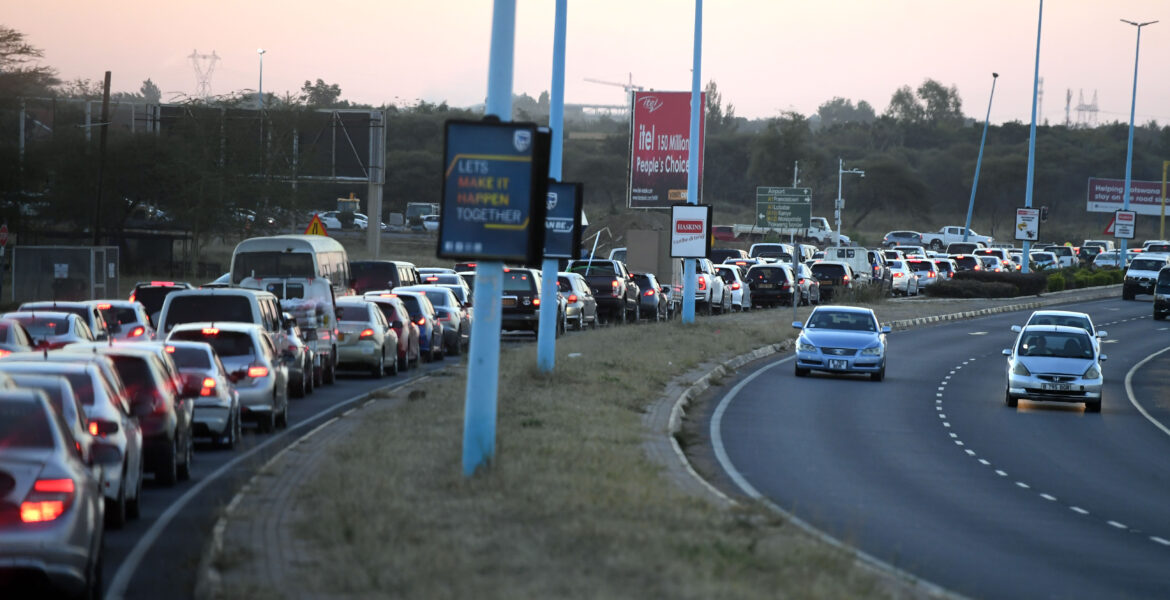A new way of raising money for Botswana’s crumbling road infrastructure
DOUGLAS RASBASH
Toll is not a nice word. The numbers killed in a disaster is a death toll, bells toll at a funeral – they chime at a wedding and peel at a coronation. What one is forced to pay – is a toll. It is a Proto-Germanic word for tax.
The tolar was the Slovenian currency before the Euro. So, no wonder good folk don’t like tolls. It is curious that air passengers pay fares – not tolls, same with railway, waterway and public transport passengers, so why are road users singled out to be tolled? Part of the explanation is that a toll is a tax, it is an unavoidable payment with no link whatever to a level of service provided. Unlike an air fare which is partially or wholly refundable if the service is not provided. In other words, a fare is a price or a payment for a service rendered, whereas a toll is tax without a transaction or any service obligations at all on the part of the provider.
Government is in the final stages of preparing its first ever national transport policy and national master-plan. How transport is to be funded is a critical aspect which must be covered – especially roads. Instead of tolling, let it be called road pricing, which has two conflicting objectives. One is to raise money – as much as possible – to help pay for the provision of roads. By provision we mean construction and maintenance. But the other objective is to get folks to leave their cars at home and to travel by public transport. In other words, as a means of reducing demand and traffic congestion – especially in big cities through pricing congestion.
Botswana does not have any tolled roads but I have studied tolling at least twice and the moment has come around for it to be considered again. The previous times it had been studied; road tolling was found not to be feasible. This is because a conventional toll plaza needs to have about 10,000 vehicles per day to cover all of the tolling operating expenses. Botswana primary roads generally have no more than 2,000 vehicles per day with only short sections of roads around Greater Gaborone with sufficient traffic. It’s not 100% true to say there are no tolls in Botswana because tolls are collected at the Kazungula Bridge.
So what can we do in Botswana to fund our roads? Toll plazas need lots of traffic, the fuel levy will need replacing in the next 10 years because of the rise in electric vehicles. It is considered best if the user pays directly for the services rendered just like electricity and water. There is something that is worth thinking about and that is paying for drive time just like we pay for air-time. For every km we drive, we pay, just like for every megabyte of data we use – we pay. So how would that work? Current systems have an on-board unit or OBU that just sticks to the windscreen and is plugged into the lighter socket. No need for fuel levies or toll plazas. No matter where we drive, GPS or Geographic Positioning Systems will pick up the location, identify the user and the road and make an appropriate charge.
A big issue is how to calculate the price that road users should pay. An exercise was carried out a few years ago to find out how much road users would be willing to pay to use Botswana roads. Not only that, but to find out if road conditions made a difference to how much they would be willing to pay. The results were very robust and determined that users will pay 7.5 thebe per km for roads in good condition but only 2.5 thebe per km for roads in poor condition. This approach has the benefit of being driven by road users and not road providers, and that is good to gain all important political acceptability.
Policy decisions can be applied to limit payments for certain types of roads and even certain users too. For example, a truck in transit moving from South Africa to Zambia will pay but emergency vehicles will not. Perhaps the first 10 km of a journey is free and rural dwellers may be exempt. But one thing is very clear, there needs to be a guarantee by the road provider that we pay less if the road is bad and more if the road is good. In this way the roads agencies will be incentivised to repair roads promptly and that would be very welcome.

